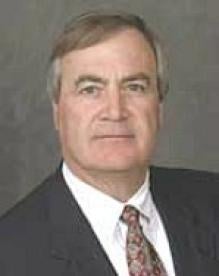This action by a business against former employees contained a copyright claim and a plethora of state law claims relating to a software program for document imaging and integration with other software. The copyright assertions addressed the software developed by the former employees, one of whom had been the lead software engineer for plaintiff.
The Court cited MiTek Holdings, Inc. v. Arce Eng’g Co., 89 F.3d 1548 (11th Cir. 1996), for the underlying elements of copyright infringement at issue. Specifically, he noted that protected expressions must have been copied by the defendant and the copied elements must meet the constitutional requirement of originality and be of importance to the copied work. Although copying is required, it can be inferred by proof of access to the copyrighted work together and similarities in the allegedly infringing work, sufficient to make the two works substantially similar to a lay person. The defendant is thereafter entitled to rebut plaintiff’s conclusion with evidence of independent creation.
Copying fails into two distinctive categories – literal and nonliteral. Source code and object code constitute the literal elements of a computer program. Non-literal elements are what is generated by operation of the code on a computer, such as screen displays, menus, and command structure. The standard is higher for infringement of non-literal elements, which must be virtually identical to infringe.
The Court noted that plaintiff did not file a motion for a preliminary injunction, did not seek discovery of defendants’ source code and did not hire an expert to examine the code or use a working version of defendants’ program. The failure to compare source code was fatal to a finding of literal infringement. The failure to examine a functioning version of defendants’ program precludes a finding of substantial similarity.
The Court noted that plaintiff had submitted affidavits concluding infringement had occurred, but without a stated or inferable basis for the conclusion. Plaintiff dismissed the examination of code as meaningless because defendants could destroy evidence of copying, but the Court noted that plaintiff had not acted expeditiously to prevent any such destruction from happening – waiting over a year to file and seeking no preliminary relief.
In granting defendants’ summary judgment motion on the copyright claim, the Court further noted testimony from plainiff’s expert that undermined plaintiff’s substantial similarity assertion – plaintiff’s expert “concluded that the Defendants’ product was inferior” to plaintiff’s product – they tried to achieve the functionality but failed. Having disposed of the federal copyright issue, the Court remanded the pendant claims to the state courts for resolution.
The case is Advanced Technology Services, Inc. v. KM Docs, LLC, et al., Civil Action File No. 1:11-CV-3121-TWT in the United States District Court for the Northern District of Georgia, Atlanta Division, and the Order was entered on April 9, 2013, by District Court Judge Thomas W. Thrash.



 i
i

